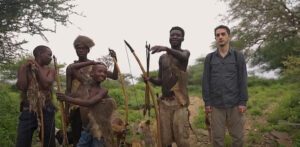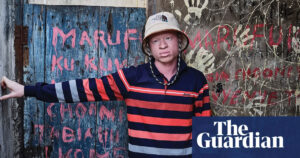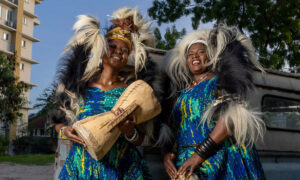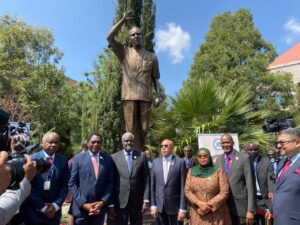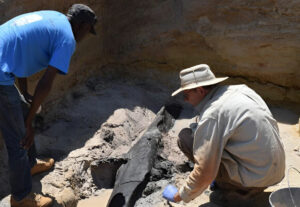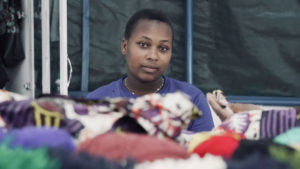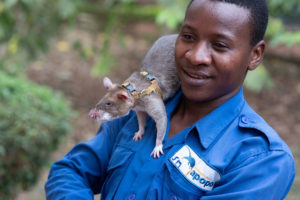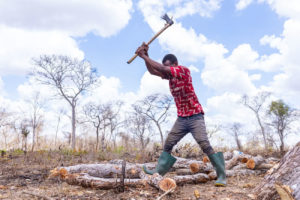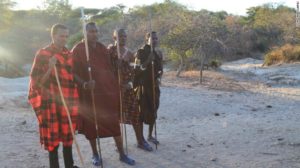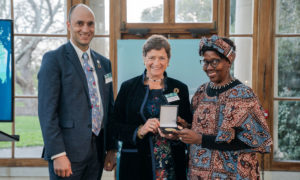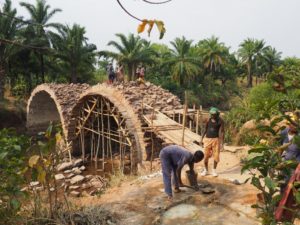by Donovan McGrath
Rapidly urbanising Africa to have six cities with populations above 10m by 2035
(Guardian online – UK) Extract: … Angola’s capital, Luanda, and Tanzania’s commercial hub, Dar es Salaam, will join the metropolises of Cairo, Kinshasa, Lagos and Greater Johannesburg with populations of more than 10 million, the Economist Intelligence Unit said in a report on African cities… This fast-paced urbanisation, which will result in more than half of Africans living in towns and cities by 2035, is expected to create wealth, dynamism and business opportunities, the report says. But, it adds: “Overcrowding, informal settlements, high unemployment, poor public services, stretched utility services and exposure to climate change are just some of the major challenges that city planners will have to grapple with.” By 2035, on top of the six megacities, the continent will have 17 urban areas with more than 5 million people and about another 100 with more than 1 million. Of the largest cities by 2035, Addis Ababa is expected to grow at an average annual rate of 10.6%, followed by Kampala, Dar es Salaam and Abidjan at above or near 9%… (22 August 2024)
I spent three days with one of the world’s last hunter-gatherer tribes where they stalk squirrels and baboons with bows and arrows
(Daily Mail online – UK) Extract: An intrepid filmmaker has revealed how he spent three days living with one of the world’s last hunter-gatherer tribes in a bid to document their stripped-back existence. Ruhi Çenet ventured to near Lake Eyasi in Northern Tanzania with a guide and translator where he met with members of the Hadza tribe. He explains in a YouTube documentary detailing his trip, that the Hadza people ‘survive by hunting their food with bows and arrows just like our ancestors did thousands of years ago deep into the wild savannah.’ Some of the animals they hunt for food, Ruhi says, include rock hyrax, squirrels, antelopes, and baboons, and to wash it down, they drink ‘muddy water,’ as their ‘immune system is strong enough to deal with the bacteria and parasites.’ Along with a unique diet, Ruhi reveals that the Hadza people speak a complex language called Hadzane which combines spoken words with clicking noises. After being introduced to the tribe’s chief, Sakoro, Ruhi prepares to go on a hunt with the male tribe members. They wake up very early in the morning in the darkness with around 10 hunting dogs in tow. Their weapons of choice include knives and arrows, with some rubbed in poison. As a form of camouflage, the men wear baboon furs and other animal skins on their head as well as around their torsos. The main portion of Ruhi’s short film then focuses on the arduous and tiring task of hunting for food. The dogs help sniff out rock hyrax and mongoose in their underground dwellings, before the tribesmen go in and spear the animals… During their breaks, the men eat from honeycombs and Ruhi explains that honey is the tribe’s ‘liquid gold’ and is ‘packed with energy and vital nutrients to keep them going strong in the wild.’ … Ruhi reveals that there has been a drop in animal population in the region where the Hadza people live due to ‘neighbouring tribes cutting down trees and driving away wildlife for crops and livestock.’ … (7 June 2024)
‘I am their voice now’: the Tanzanian rapper with a mission to spread pride in his own colour
(Guardian online – UK) K-Zungu, an up and coming singeli artist with albinism, says he was lucky to have a protective family because so many with the condition in Africa have not been so fortunate. Extract continues: Every day during school break, Ramadhani Idrisa Muhando and his friends would turn on their radio to listen to 20 Percent or Jose Chameleone, stars of bongo flava, a Tanzanian music genre influenced by hip-hop and R&B. So his love of music, he says, “has its roots in that schoolyard” in Tanga, on Tanzania’s east coast, but it was singeli, a style developed 125 miles away in Dar es Salaam, that changed the course of his life. “Boda boda [motorcycle] drivers played singeli on loudspeakers. Those new rhythms flooded our neighbourhoods and I couldn’t help but fall into its nets,” he says. Muhando – know as K-Zungu – is a singeli artist, the first the country has known with albinism. “Zungu means ‘white’ in Swahili, and K is the first letter of my grandfather’s name, Kaniki. That’s why I chose that name,” he says. Albinism, a hereditary condition that results in a lack of pigmentation in skin, hair and eyes, affecting one in 1,400 Tanzanians, is bound up with superstition. Some people believe myths that the body parts of people with the condition can bring wealth or cure illness, which has led to attacks and killings. UN statistics show 75 people with albinism were murdered in Tanzania between 2000 and 2016… K-Zungu … is using his music to challenge the fears around albinism… His song, Albino, describes someone returning home to find a gang of boys threatening to cut off his hands and sell them. “We deserve peace and happiness. I’m proud of my colour, this is me,” he raps in the song, appealing to the government to take action against those “who brutally attack and kill us”… (17 June 2024)
Idris Elba’s studio plan sparks dreams of ‘Zollywood’
(BBC News online – UK) Extract: Hollywood star Idris Elba has been allocated land in Zanzibar … to launch a film studio. The British actor, who has roots in Sierra Leone and Ghana, has previously voiced his ambitions to develop Africa’s expanding film industry. Roughly a year and-a-half after discussing his plans with Tanzanian President Samia Suluhu Hassan, the authorities in the East African nation have given Elba the green light. The studio would be similar to any in “Hollywood, Nollywood or Bollywood” – and may give rise to “Zollywood”, Zanzibar’s investment minister is quoted by local media as saying. “I’m not sure how we will call it in Zanzibar, whether Zollywood or Zawood,” Shariff Ali Shariff joked as he addressed industry figures at the Zanzibar International Film Festival … President Samia spoke with Elba, best known for his roles in Luther and the Wire, about the studio in January 2023 at the World Economic Forum in Switzerland. Following discussions, the president’s spokesperson said “if successful, the project will help not only Tanzania but also eastern and central Africa”… (2 August 2024)
Tanzanian artist who burnt president’s picture freed
(BBC News online – UK) Extract: A young Tanzanian portrait artist who was convicted … of cybercrimes has been released from prison after social media users raised more than $2,000 (£1,600) to pay his fine. Shadrack Chaula was ordered by a court to pay the fine or face two years in prison after he admitted recording a video that went viral on social media, showing him burning a picture of President Samia Suluhu Hassan while insulting her. “Thank you very much fellow Tanzanians for coming to my rescue,” Mr Chaula told journalists shortly after his release … The case sparked an uproar in the country, with some lawyers saying the 24-year-old painter did not break any law by burning the picture. Police said they arrested him for using “strong words” against President Samia in the TikTok video he recorded in Ntokela village near the south-western city of Mbeya. When he appeared in court … Mr Chaula was charged with spreading false information about the president, contravening the country’s cybercrime laws. The court ruled that his actions constituted cyber-harassment and incitement. Mr Chaula said the sentence was too harsh but the prosecution had pushed for a more severe penalty, saying this was necessary to deter others from “disrespecting” the president… (9 July 2024)
Tanzania police commander transferred over sex work comment
(BBC News online – UK) Extract: A police commander in Tanzania’s capital, Dodoma, has been removed from her post following controversial comments in which she linked an alleged gang-rape victim to sex work… [A] video appearing to show a young woman being assaulted went viral, prompting an outcry in the East African nation. Four men … denied charges over the alleged attack… [The] police commander in … Dodoma, was quoted in a Tanzanian newspaper as saying the “woman in question appeared to be engaged in sex work”. Following a backlash and accusations that the comment minimised the woman’s ordeal, Tanzania’s national police force apologised and said the commander had been transferred. “The police force would like to apologise to everyone who was touched and offended by the statement circulating in the media while monitoring is being done to find its accuracy,” national police spokesperson David Misime said … Mr Msime added that in her comments to local newspaper Mwananchi, Dodoma Regional Commander Theopista Mallya had said that even if the woman was a sex worker, “she did not deserve to be treated that way”. These words did not appear in Mwananchi’s report – the BBC has contacted the newspaper for comment. In response to Mwananchi’s report, lawyer Peter Madeleka said on social media platform X that Ms Mallya’s comments were “proof of police cruelty to women’s rights”. Fatma Karume, a lawyer and prominent activist, also expressed outrage on X, writing: “Those who sell themselves can not be raped in this country?” In the video that appeared to show the woman being raped, the suspects reportedly interrogated her, forcing her to apologise to someone referred to as “afande”. In Tanzania “afande” is often used to refer to a soldier or police officer, so many activists and social media users expressed outrage that a sexual assault could have been carried out on the orders of a member of the security forces… (19 August 2024)
‘We don’t need more concrete’: A new village in Tanzania will use 3D printer and soil to build its community
(CNN online – USA) Extract: Building with 3D printers has matured rapidly in recent years, as advances in technology and material science allow for grander and more ambitious designs. The potential uses are also increasingly varied, from affordable housing to a planned NASA base on the Moon. Most 3D-printed structures are built using concrete or other pourable, cementitious substances that are cheap, reliable and durable – although, almost invariably, with a hefty carbon footprint attached. But a nascent development in the field may offer a more sustainable approach: 3D printing with earth. In Kibaha, Tanzania, just west of the capital Dar es Salaam, a group of pioneering architects are set to build a new village with “earth printing” at its heart. Created by architecture firms Hassell and ClarkeHopkinsClarke, alongside charity foundation One Heart Hope Village has been designed to help and house children from across the country who have experienced hardship or unsafe home environments… Nearly 50 buildings are planned for the site… The landmark building for Hope Village is its community center, a 3D-printed design that will serve as a school hall and cafeteria during the week and open to the wider community for events at weekends. The architects knew they wanted to use locally sourced earth for the community center, but were wary of the limitations of rammed earth, which is typically compacted into thick, flat walls. “We wanted to make sure that we’re able to create walls that could ventilate the building, but at the same time also bring in light,” said Hassell’s head of design and innovation, Xavier De Kestelier, in a video call with CNN… Building with earth dates back to prehistory and has taken many forms, including mudbricks, adobe and rammed earth. 3D printing with soil was first attempted in 2018, and the first 3D printed home made from entirely from earth, called TECLA, was designed by Mario Cucinella Architects and constructed near Ravenna, Italy in 2021… In Tanzania, the printer will build up layers of compacted soil in interconnected curved columns that leaves negative space for light and air to filter through. Beyond shape, engineering durability is a key challenge when working with earth. Concrete is a resilient material that can endure the elements; earth less so. But De Kestelier insists that when it comes to 3D-printed architecture, “we don’t need to use more concrete,” and that more sustainable options are the future – when used correctly… (1 August 2024)
Chilli bombs and honeybees: Weapons in Tanzania’s human-elephant conflict
(Aljazeera online – Qatar) Extract: Mwana Athumani Msemo’s homestead sits encased in the undulating grasslands that surround Mount Kilimanjaro, an area so quiet and remote that clucking and bleating from her chicken and goat farm are the only sounds to be heard for kilometres. The landscape, with its crisp air and lush greens, holds glorious beauty. But for Msemo, it also holds ever-present anguish. It was somewhere in this wilderness that her husband took their cattle out to graze one afternoon two years ago and never returned. By the time the village search team found him at the end of a long trail of elephant footprints, it was dark and he had been dead for hours – a gaping hole where his stomach once was… “He left me with five kids,” the 55-year-old said in Swahili, sitting in her living room, her hands over face. A sob escaped her pursed lips … Across Tanzania … expanding human populations are encroaching more and more on wildlife spaces, putting people on a collision course with roaming animals in increasingly fatal events. In many rural communities like Ngulu Kwakoa, which sits near a wildlife corridor, the most common are clashes with elephants – animals that must migrate in search of food and that can turn from gently giants to charging aggressors in an instant. The giant mammals are a massive pain for farmers, too… Finding solutions to elephant-human conflicts must focus on expanding and freeing up wildlife corridors, so the animals can roam more freely without encountering humans, analysts say… In Tanzania, some have taken to filling up rubber condoms with chilli powder – a spice the elephants hate – and hauling it at raiding invaders like bombs. Others use sound as a means of distraction, beating loudly on steel buckets at intervals to scare elephants away. Six hours west of the Kilimanjaro region, communities are scaling another method pioneered by [Lucy] King herself [a researcher with Save the Elephants, a non-profit based in southern Kenya], with the help of an unlikely character – tiny honeybees. In her research, King found that elephants are mightily scared of bees. Stings on the sensitive insides of their trunks, the sides of their mouths, and behind their ears are so painful, that the intelligent animals know to scram when they hear the buzz of a hive. Playing on that fear, King came up with the idea to position bees strategically around farms and realised that it could deter elephants from going ahead with raids. After testing the method in Kenya, the researcher created a manual and published it so that conservationists from Tanzania to India are now making use of it… (11 June 2024)
‘Women have always been sidelined. So we’re radical’: the Zawose Queens go from Tanzania to Glastonbury
(Guardian online – UK) The multi-talented musicians were held back in their home country where even certain instruments were off limits … Extract continues: Walking into an industrial estate in Peckham, I can hear impassioned cries coming out of a rehearsal space located here. Soaring vocals are punctuated by the gentle strum of a thumb piano along with bells that are strapped to the shaking ankles of Pendo and Leah Zawose, who make up the Zawose Queens. It’s their first time playing this music outside Tanzania … The remarkable singing that fills the room has a long history in the Zawose family, with Pendo’s father and Leah’s grandfather Hukwe being a pioneer of Gogo music, which is specific to the tribe they belong to… Pendo sang and performed with her father, who died in 2003, since she was a child. However, for years her role was limited. “The women were always in the background,” she says… “This is an opportunity to be at the forefront, prove myself, and shine.” Now singing and playing a range of instruments, the Zawose Queens came to be after a British Council-funded project connecting Tanzanian and British artists put Leah and Pendo together with UK producers Tome Excell and Oli Barton-Wood. They have made an album together, the recently released Maisha. “This record has been something I’ve been dreaming of doing since I was 12,” says Barton-Wood. “I moved to Tanzania for two years, and went to school there, so I’ve always wanted to come back to do a project like this.” Maisha is rooted in traditional singing and instrumentation, featuring chizeze fiddle along with muheme and ngoma drums but it’s also embellished with more contemporary electronic touches… The Zawose Queens … also have a special show at Womad festival, where Hukwe used to perform as a trailblazing, yet rare, Tanzanian artist … (25 June 2024)

